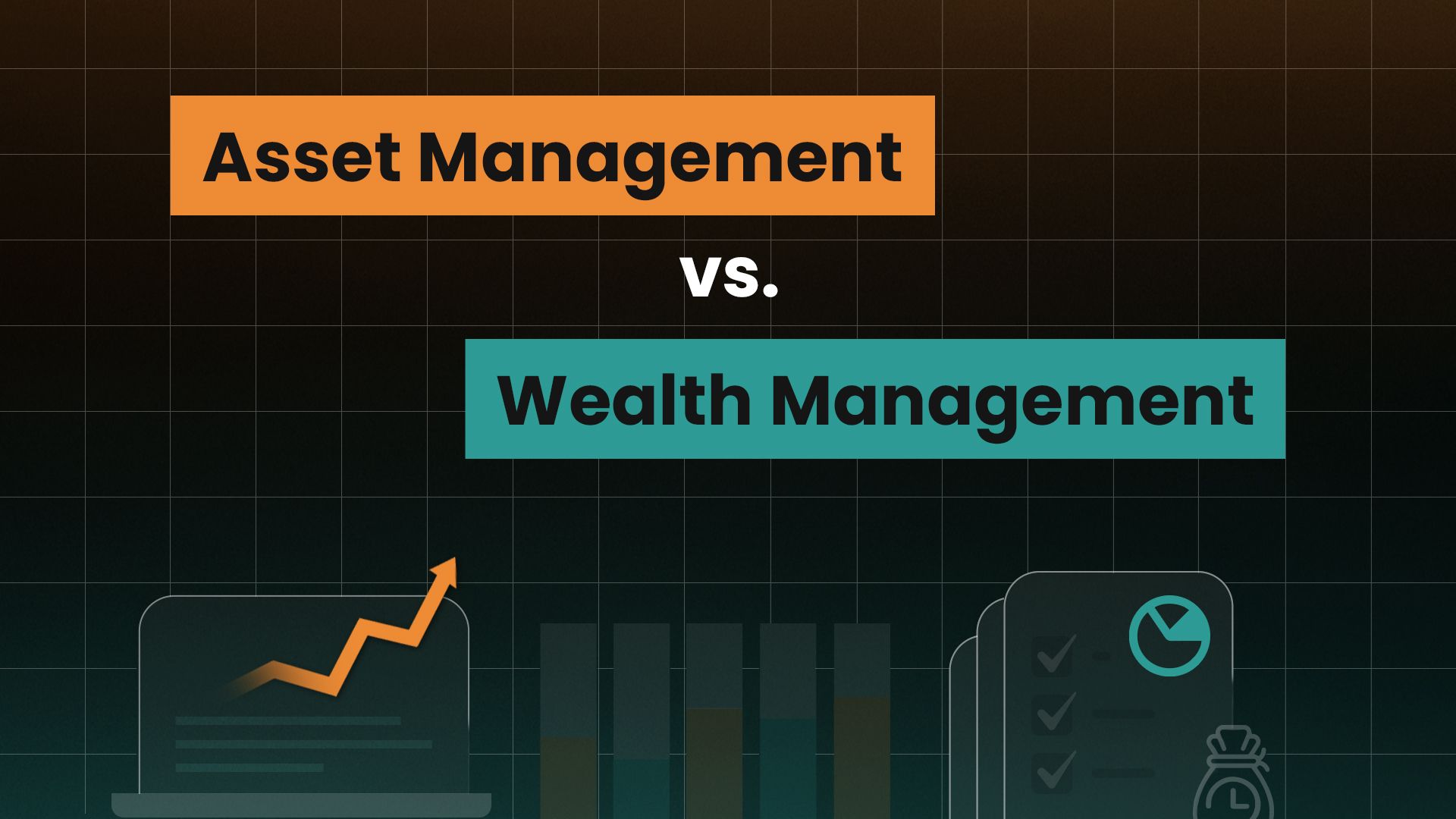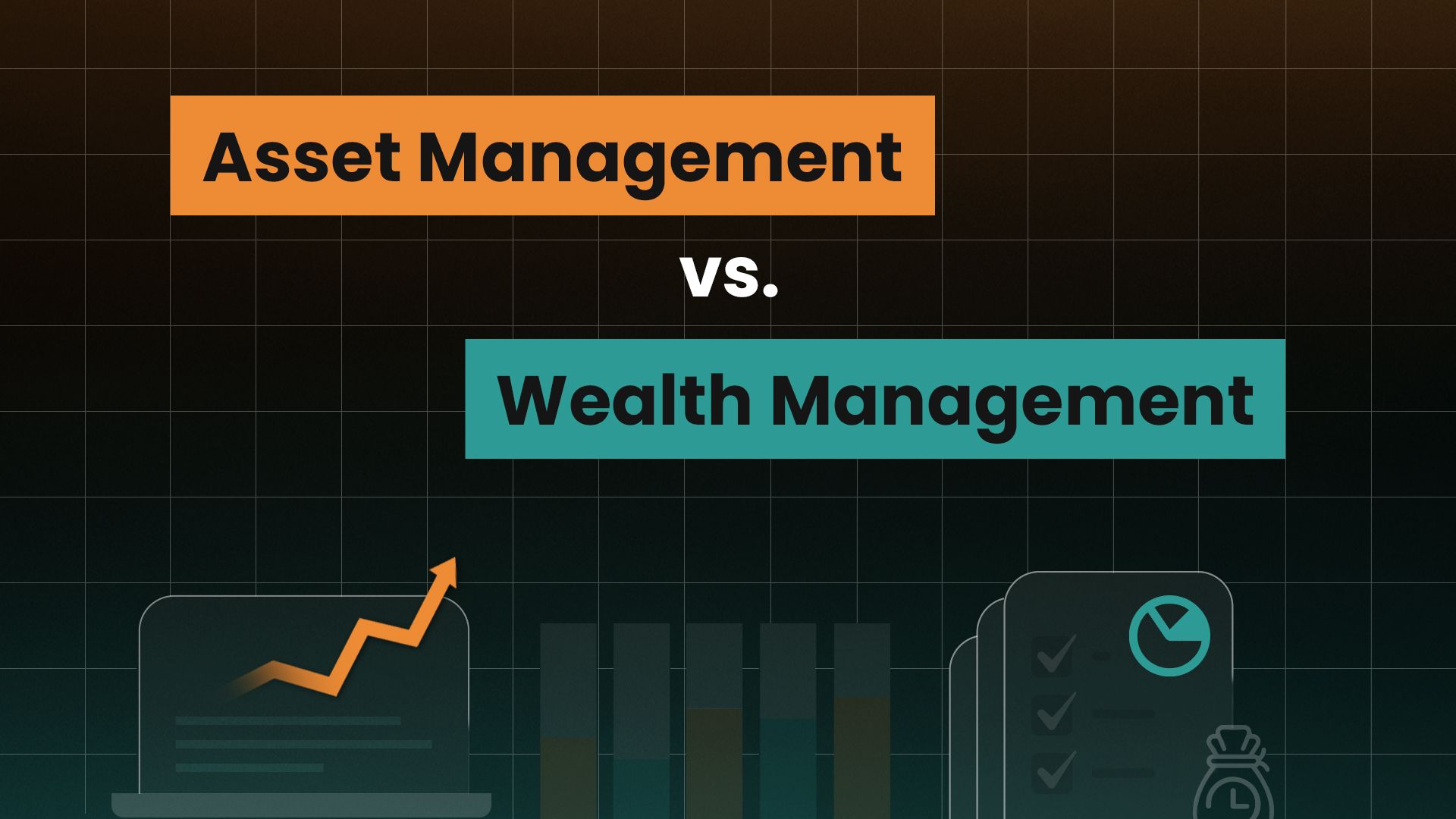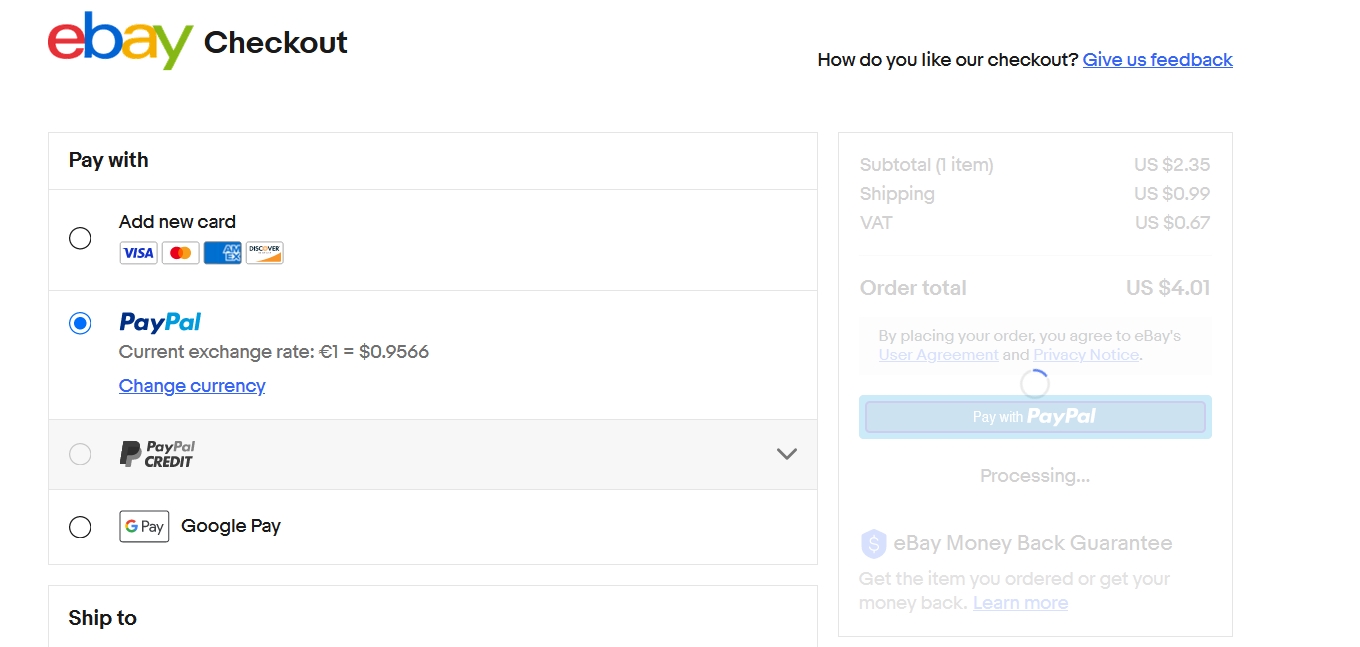

Finance
What Is Wealth Management Platform
Modified: February 21, 2024
Discover how a wealth management platform can streamline your finance operations and help you achieve your financial goals. Explore the benefits now!
(Many of the links in this article redirect to a specific reviewed product. Your purchase of these products through affiliate links helps to generate commission for LiveWell, at no extra cost. Learn more)
Table of Contents
Introduction
Welcome to the world of wealth management platforms! As investors, financial advisors, and institutions continue to navigate the complex landscape of wealth management, the role of technology in streamlining and optimizing financial processes has become increasingly significant. In this article, we will explore what wealth management platforms are and why they are essential in today’s financial ecosystem.
A wealth management platform, commonly known as a WMP, is a digital solution designed to help individuals and institutions efficiently manage their assets, investments, and financial goals. It acts as a centralized hub where investors can access a wide range of financial services, including investment advice, portfolio management, risk analysis, and reporting.
With the advancement of technology, wealth management platforms have revolutionized the traditional approach to financial management. Gone are the days of piles of paperwork and manual calculations. Today, investors can leverage powerful algorithms, data analytics, and intuitive interfaces to make informed decisions and drive better outcomes.
The primary objective of a wealth management platform is to provide investors with a holistic view of their financial situation and empower them to take control of their wealth. These platforms offer a robust set of tools and resources that enable users to track and optimize their investments, analyze market trends, diversify portfolios, and plan for future financial goals.
Whether you are a high-net-worth individual looking for personalized investment advice or a financial advisor seeking efficient portfolio management solutions, a wealth management platform can be a game-changer. It provides a comprehensive suite of features and benefits that can significantly enhance the investment journey for both individuals and institutions.
In the next sections, we will dive deeper into the specific features and benefits of wealth management platforms, as well as explore the key players in the market. We will also discuss the importance of these platforms for investors and highlight some of the challenges and limitations they may face. So buckle up and get ready to embark on a journey into the exciting world of wealth management platforms!
Definition of Wealth Management Platform
A wealth management platform (WMP), also known as a digital wealth management platform or a wealthtech platform, is a sophisticated technology solution that enables individuals and institutions to manage their wealth, investments, and financial goals in a streamlined and efficient manner. It serves as a centralized hub where users can access a range of financial tools, services, and resources.
A wealth management platform offers a comprehensive suite of features, including investment management, portfolio tracking, financial planning, risk analysis, and reporting. It leverages advanced algorithms, artificial intelligence, and data analytics to provide users with actionable insights and personalized recommendations.
One of the key elements of a wealth management platform is its ability to aggregate financial data from multiple sources. This means that users can integrate their bank accounts, investment accounts, retirement funds, and other assets into a single interface, allowing for a holistic view of their financial situation.
Furthermore, wealth management platforms often offer customization options, allowing users to tailor their investment strategies and goals according to their risk tolerance, time horizon, and financial objectives. They may also provide access to a wide range of investment options, including stocks, bonds, mutual funds, ETFs, and alternative investments.
Another important aspect of wealth management platforms is their emphasis on user experience. These platforms typically feature intuitive interfaces, interactive dashboards, and mobile accessibility, ensuring that users can easily navigate and monitor their investments from anywhere, at any time.
Overall, a wealth management platform is a powerful tool that brings together technology and financial expertise to help individuals and institutions optimize their wealth management journey. It empowers users to make informed decisions, automate processes, and achieve their financial goals efficiently and effectively.
Features and Benefits of Wealth Management Platform
Wealth management platforms offer a wide range of features and benefits that can significantly enhance the investment experience for individuals and institutions. Let’s explore some of the key features and the advantages they bring:
1. Investment Management:
A wealth management platform provides users with robust investment management tools and resources. It allows individuals to create and manage diversified portfolios, access real-time market data, and execute trades. Institutions can leverage these platforms to efficiently manage and allocate client assets.
2. Financial Planning:
Effective financial planning is crucial for achieving long-term financial goals. Wealth management platforms offer comprehensive financial planning tools that help users set realistic objectives, create personalized investment strategies, and track progress towards their goals.
3. Risk Analysis:
Understanding and managing investment risk is essential for successful wealth management. These platforms employ sophisticated risk analysis algorithms to assess portfolio risk, identify potential vulnerabilities, and suggest appropriate risk mitigation strategies.
4. Reporting and Analytics:
Wealth management platforms provide detailed reporting and analytics capabilities, giving users insights into their investment performance, asset allocation, and market trends. These features enable individuals and institutions to make data-driven decisions and evaluate the effectiveness of their investment strategies.
5. Access to Expertise:
Many wealth management platforms offer access to a network of financial advisors and experts. Users can seek guidance and support for investment decisions, financial planning, and market insights. This feature is particularly beneficial for individuals who may not have extensive financial knowledge or experience.
6. Automation and Efficiency:
Wealth management platforms streamline and automate various financial processes, saving users time and effort. Tasks such as portfolio rebalancing, dividend reinvestment, and tax optimization can be automated, reducing the administrative burden and enhancing efficiency.
7. Scalability and Customization:
Wealth management platforms are designed to accommodate the needs of both individual investors and large institutions. They offer scalability, allowing users to adjust their investment strategies as their wealth grows. Additionally, these platforms provide customization options to tailor investment plans according to specific goals and risk profiles.
The benefits of utilizing a wealth management platform are numerous:
- Enhanced transparency in investment decisions and strategies;
- Improved portfolio performance through data-driven insights;
- Access to a wide range of investment options and asset classes;
- Automated processes leading to time and cost savings;
- Efficient collaboration and communication between investors and advisors;
- Increased confidence and peace of mind in managing financial goals.
In summary, wealth management platforms offer a comprehensive suite of features and benefits that optimize investment management, financial planning, and decision-making. They empower individuals and institutions with the tools and resources necessary to navigate the complex world of wealth management successfully.
Key Players in the Wealth Management Platform Market
The wealth management platform market is highly dynamic and competitive, with several industry-leading players shaping its landscape. Let’s take a look at some of the key players in the market:
1. BlackRock
BlackRock is a global investment management firm that offers a wealth management platform known as Aladdin. Aladdin provides end-to-end solutions for portfolio management, risk analysis, and trading. It is widely used by institutions, asset managers, and financial advisors for its robust capabilities and risk management tools.
2. Fidelity Investments
Fidelity Investments is a well-established financial services company that provides a comprehensive wealth management platform called Wealthscape. Wealthscape offers a range of tools and services, including financial planning, investment management, and account aggregation. It is known for its intuitive user interface and extensive reporting capabilities.
3. Charles Schwab
Charles Schwab is a leading brokerage firm that offers the Intelligent Portfolios platform. Intelligent Portfolios provides automated investment management services and access to a wide range of investment options. It is popular for its low-cost, algorithm-based approach to portfolio management.
4. Vanguard
Vanguard is an investment management company known for its low-cost index funds and ETFs. It offers a wealth management platform called Personal Advisor Services (PAS). PAS combines human advice from certified financial planners with sophisticated technology to deliver personalized investment strategies.
5. Betterment
Betterment is a prominent robo-advisor that provides a user-friendly wealth management platform. Their platform offers automated portfolio management, tax-efficient strategies, and goal-based financial planning. Betterment is known for its emphasis on low fees and accessibility for individual investors.
6. Wealthfront
Wealthfront is another popular robo-advisor that offers a comprehensive wealth management platform. Their platform uses advanced algorithms and tax optimization strategies to manage and rebalance portfolios automatically. Wealthfront is well-regarded for its focus on delivering personalized investment solutions to individual investors.
These are just a few examples of the key players in the wealth management platform market. Other notable companies in this space include BNY Mellon’s Albridge, Envestnet, and Apex Clearing Corporation, among others. As technology continues to evolve and new players emerge, the competition within the wealth management platform market is expected to intensify.
Investors and institutions should carefully evaluate the offerings and capabilities of different providers to identify the wealth management platform that best aligns with their specific needs and objectives. Conducting thorough research and seeking recommendations from trusted sources can help in making informed decisions in selecting the right platform.
Importance of Wealth Management Platform for Investors
In today’s fast-paced financial landscape, a wealth management platform plays a crucial role in supporting investors’ financial goals and strategies. Here are some key reasons why a wealth management platform is important for investors:
1. Comprehensive Financial View:
A wealth management platform allows investors to have a holistic view of their financial situation. By integrating all their financial accounts, including banking, investing, and retirement accounts, investors can easily track their assets, liabilities, and net worth. This comprehensive view enables better decision-making and financial planning.
2. Goal-based Investing:
Wealth management platforms enable investors to set financial goals, whether short-term or long-term, and create a personalized investment plan to achieve them. These platforms provide tools and calculators to assess the feasibility of goals and track progress over time. Goal-based investing helps investors stay focused and disciplined in achieving their objectives.
3. Diversification and Risk Management:
A key principle of successful investing is diversification. Wealth management platforms offer features that help investors build diversified portfolios across different asset classes, sectors, and geographies. Additionally, these platforms provide risk analysis tools, enabling investors to assess and manage their risk tolerance effectively.
4. Access to Investment Opportunities:
Wealth management platforms provide investors with access to a wide range of investment opportunities. Whether it’s stocks, bonds, mutual funds, ETFs, or alternative investments, these platforms offer a curated selection of investment options. This access to diverse investment opportunities allows investors to build a well-rounded portfolio aligned with their goals and risk profile.
5. Automated Portfolio Management:
Wealth management platforms automate various aspects of portfolio management, including rebalancing and tax optimization. This automation saves investors time and effort while ensuring that their portfolios remain aligned with their target asset allocation and risk tolerance. It also helps in optimizing tax efficiency, potentially enhancing overall portfolio returns.
6. Educational Resources:
Wealth management platforms often provide educational resources to help investors expand their financial knowledge. This can include articles, videos, webinars, and seminars on various investment topics. Access to educational resources empowers investors to make informed decisions and develop a deeper understanding of financial concepts.
7. Collaboration with Advisors:
Wealth management platforms facilitate seamless collaboration between investors and financial advisors, if desired. Investors can securely share their financial information with advisors, who can then provide personalized recommendations and guidance. This collaboration empowers investors to make informed decisions while benefiting from the expertise of professionals.
Overall, a wealth management platform is essential for investors as it provides tools, insights, and resources to manage and grow their investments effectively. By leveraging technology and automation, investors can make informed decisions, optimize their portfolios, and work towards their financial goals with confidence.
Challenges and Limitations of Wealth Management Platform
While wealth management platforms offer numerous benefits, it is important to acknowledge the challenges and limitations that investors may encounter when using these platforms. Here are some key challenges to consider:
1. Technological Complexity:
Wealth management platforms heavily rely on advanced technology and complex algorithms. This can pose challenges for investors who may not be technologically savvy or comfortable navigating digital interfaces. The learning curve associated with using these platforms can be steep for some individuals.
2. Data Security and Privacy:
As wealth management platforms handle sensitive financial data, ensuring robust data security and privacy is vital. Investors need to be cautious about the security measures employed by the platform providers to safeguard their information. It is crucial to choose platforms that prioritize data protection, employ encryption protocols, and comply with regulatory standards.
3. Availability of Human Advice:
While wealth management platforms provide access to sophisticated tools and resources, some investors may prefer or require human advice. The absence of face-to-face interaction and personalized guidance can be a limitation for individuals who value the expertise and experience of financial advisors.
4. Reliability and System Downtime:
Like any technological system, wealth management platforms may experience occasional downtime or technical glitches. These interruptions can disrupt access to account information, trading capabilities, or real-time market data. Investors should be aware of the platform provider’s track record in terms of system stability and reliability.
5. Limited Customization:
Although wealth management platforms offer flexibility in terms of investment strategies, risk profiles, and asset allocation, there may still be limitations on the level of customization. Some platforms may have predefined model portfolios or restricted investment options, which may not fully align with the preferences and objectives of all investors.
6. Financial Dependency on Platform Providers:
Investors using wealth management platforms may become financially dependent on the platform provider for continuous access to their investments and financial services. Should the platform provider cease operations or face financial difficulties, it could impact investors’ ability to manage their assets effectively.
7. Incomplete Market Coverage:
While wealth management platforms aim to provide access to a wide range of investment options, they may not cover every financial instrument or investment opportunity available in the market. Certain niche investments or alternative asset classes may not be available on all platforms, limiting diversification options for investors with specific preferences.
It is important for investors to carefully consider these challenges and limitations when choosing and utilizing a wealth management platform. Conducting thorough due diligence, assessing individual needs, and seeking professional advice are essential steps to mitigate the potential drawbacks and maximize the benefits of using these platforms.
Conclusion
Wealth management platforms have transformed the way investors navigate the world of finance, providing a range of tools, resources, and benefits. These platforms offer a centralized hub for managing investments, financial planning, and achieving long-term goals.
By leveraging advanced technology, wealth management platforms empower investors to make informed decisions, optimize their portfolios, and track their progress. The comprehensive view of financial data, goal-based investing, and automated portfolio management enhance the investment experience and improve outcomes.
However, it is crucial to be aware of the challenges and limitations that come with utilizing wealth management platforms. Technological complexities, data security and privacy concerns, and system reliability are factors to consider. Additionally, the absence of human advice and limited customization options may not align with the preferences of all investors.
Despite these challenges, the benefits of wealth management platforms are significant. They offer transparency, access to investment opportunities, risk analysis tools, and educational resources. The ability to collaborate with financial advisors and automate processes further enhance the investor’s journey.
Choosing the right wealth management platform requires careful evaluation of individual needs, preferences, and the platform provider’s capabilities. Conducting thorough due diligence, reviewing system reliability, and ensuring data security are essential steps in selecting the most suitable platform.
In conclusion, wealth management platforms have revolutionized the way investors manage their wealth. These platforms combine technology, expertise, and accessibility to empower investors to achieve their financial goals. As technology and innovation continue to shape the financial landscape, wealth management platforms will play an increasingly integral role in helping investors navigate the complexities of wealth management.














